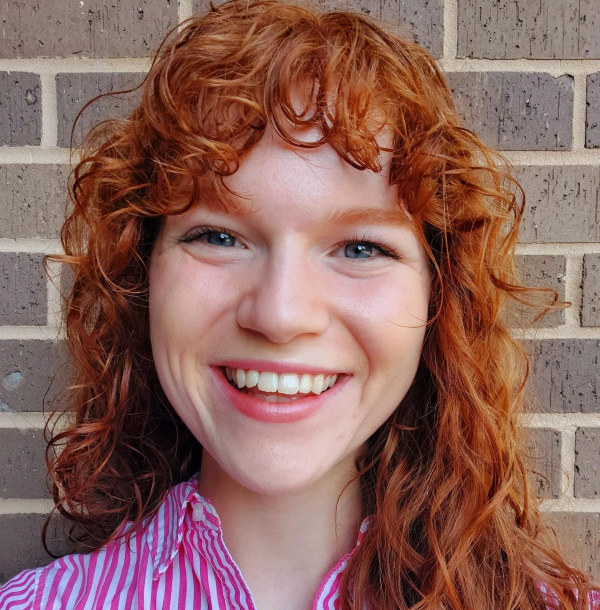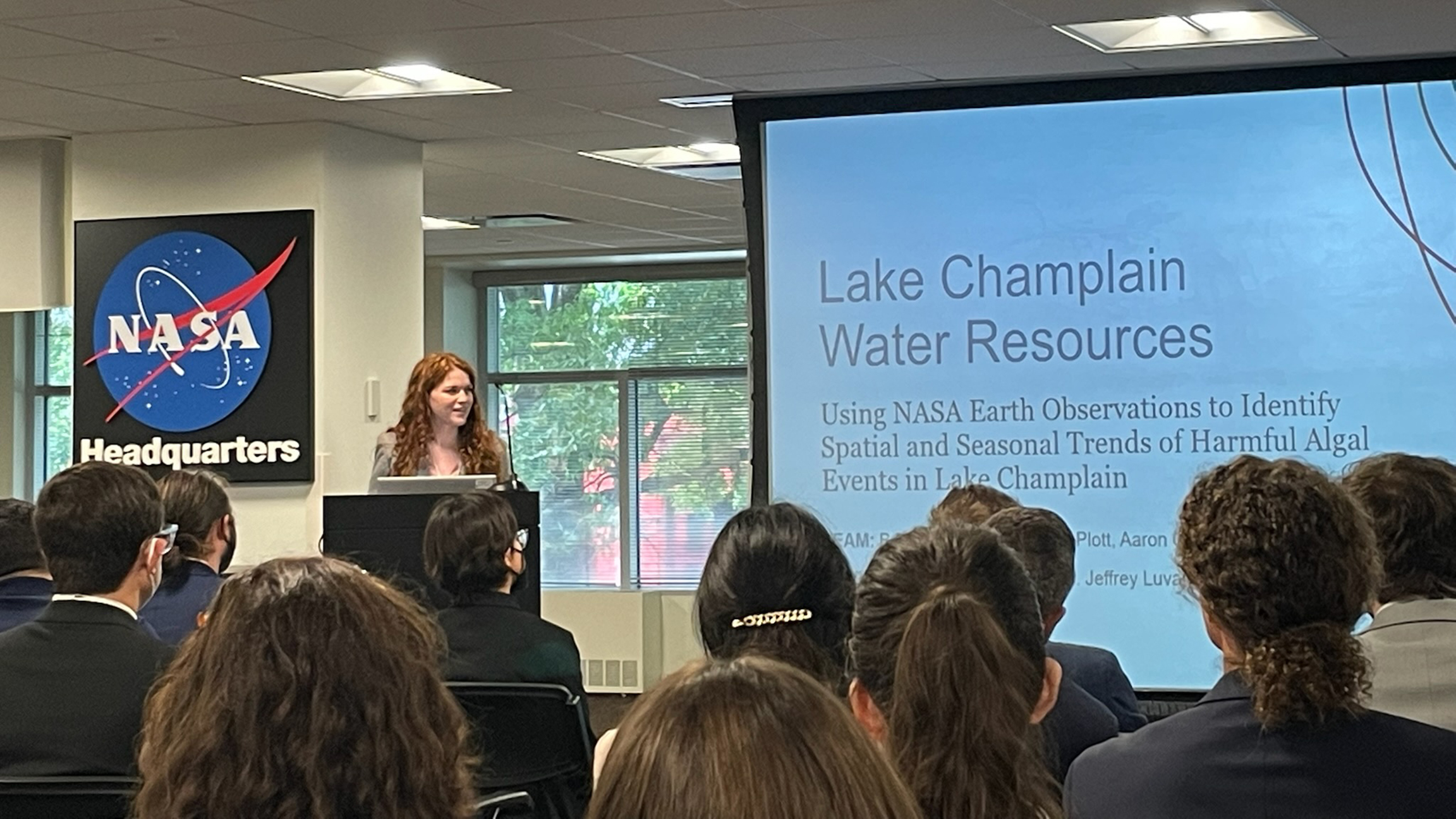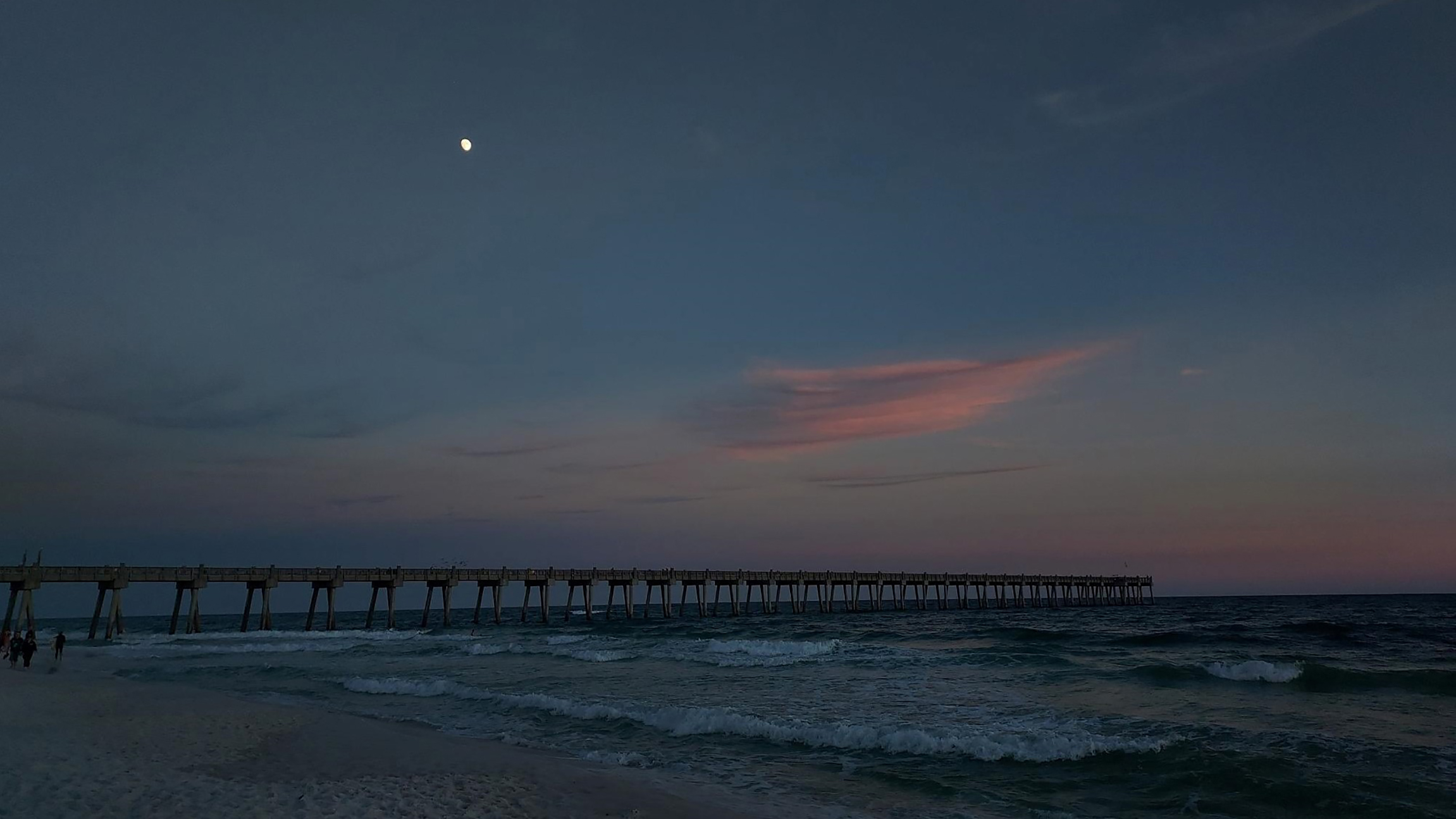WE SAT DOWN WITH NEW AUWRC TEAM MEMBER, BRIANNE MINTON, ALABAMA DROUGHT REACH PROGRAM COORDINATOR.
Tell us about your background and previous position.

I grew up in Murfreesboro, TN but moved to Birmingham, AL for undergrad where I received my B.S. in Urban Environmental Studies and minors in math and religion from Birmingham-Southern College. BSC’s Urban Environmental Studies program is unique because it combines traditional environmental science classes with environmental policy. I similarly split my time at BSC between wildlife management and conservation policy internships. I’m the kind of person that can enjoy just about any kind of work, but I realized through a summer internship with Turkey Creek Nature Preserve (TCNP) in Pinson, AL that my passion is in science communication.
I helped lead aquatic ecology classes at TCNP and loved seeing the excitement on kid’s faces when they touched a salamander for the first time or saw a beautiful vibrant Vermilion darter in their sein net. After graduating, I decided to gain more technical skills that would be appropriate for working in the field. I joined NASA DEVELOP, a capacity building program in NASA’s Earth Science division, that taught me how to use remote sensing observations in environmental research. After one year, I transitioned to a project manager position which gave me the opportunity to create projects, manage teams, work in communications, and present research.
Working for NASA DEVELOP was pivotal to my career for two reasons. One – I learned that my place in science is in communication. My favorite part of research is being able to teach it to others and engage the community in matters that very much pertain to them. A changing climate and a changing world impacts all of us. Second – I met Dr. Lee Ellenburg at the AL Office of the State Climatologist. Lee is an incredible mentor of mine and he was the one who encouraged me to apply to be the Alabama Drought Reach coordinator here at the AUWRC! If I have learned anything from my various jobs thus far, it’s to make friends wherever you go. People always said to make “connections”, but that always felt too stressful to me, like everything needed to be a networking opportunity that furthered my career instead of simply an opportunity to meet interesting people. When I started focusing on making friends instead of making connections, it was so much easier to find new opportunities and career paths. I’m so grateful to all the friends who helped pave a way to the AUWRC!

Brianne holding a fish view during her summer internship with the Turkey Creek Nature Preserve. (Left) Brianne during her time as a raptor rehabilitation intern at the Alabama Wildlife Center. Photo Credits: Brianne Minton
Describe you new position with AUWRC!
I recently joined the AUWRC team (as in not even a month ago!) as the Alabama Drought Reach (ADR) coordinator. ADR is new AUWRC program that focuses on improving drought communication and documentation of drought’s agricultural impacts in Alabama, resulting in a more informed scientific and agricultural community. Simply put, drought has major impacts on our agriculture, which directly affects not only the incredible farmers who work tirelessly to foster healthy crops and livestock, but also us as the consumers of those products. If drought affects all of us, then we need to have as much information about drought impacts and trends as possible. This is why ADR is working directly with the Alabama Office of the State Climatologist, the Alabama Cooperative Extension System (ACES), and the Alabama Agricultural Experiment Station (AAES) to improve drought communication and impact reporting across the state. ADR has four primary objectives:
- Develop a systematic approach and monitoring program for drought agricultural impact data collection by Extension and Experiment Station personnel.
- Develop and conduct drought training for Extension and Experiment Station personnel.
- Work alongside the Office of the State Climatologist to provide timely and relevant agricultural impact data.
- Increase drought impact literacy among Alabama farmers, landowners, and the general public.
What’s on the horizon for the next year for ADR?
Our big goal this year is to prepare ADR to launch its drought training for ACES and AAES personnel in February 2024. I’m spending the summer developing an app that will allow ACES agents to give timely input on drought stressors across the state. This information will then be shared with the Alabama Office of the State Climatologist that will help them manage overall drought severity and conditions. The goal is to give the State Climatologist as much detailed information about drought indicators as we can to help them highlight drought trends on a smaller scale (i.e. sub-county level). Another huge component of ADR is drought outreach and communication. Follow us on Twitter (@ALDroughtReach) or keep on eye on our website to stay up to date on statewide drought conditions!
In your career, what is the best advice you’ve been given?
Some of the best career advice I’ve been given has been from my mentor and friend Charles Yeager at the Turkey Creek Nature Preserve, where I lived and worked for a summer in college. I was 19 at the time and still very much dependent on having people tell me what to do at work. I enjoyed working off a set task list and was too nervous to stray off the path. One day, in the middle of a rain storm that pushed us inside, Charles told me and the other intern that it was time for us to find our own tasks on the preserve. He wanted us to learn how to identify management needs on the property and start working through them on our own. It was unbelievably daunting at first, but as the days got longer I got more comfortable finding work for myself. I didn’t realize how important this life lesson was until I started working full-time after college. There’s only so much that your supervisors can assist with – there comes a point where you have to take the lead and find work for yourself (whether that be identifying new research needs or assessing new projects). While Charles’ advice to find my own work was beneficial, it was really his trust in me that made a lasting impact. He believed I could do great things on my own, which helped me become more confident as a young woman in science. I’m so grateful for everyone in my life who has built that confidence and hope I can pass it along to the next generation of scientists.

Brianne presenting DEVELOP research at NASA HQ in Washington DC. Photo Credit: Brianne Minton
What are 2 books that you think everyone should read and why?
A book that I recently read and am already excited to re-read is “Animal, Vegetable, Miracle: A Year of Food Life” by Barbara Kingsolver. This book chronicles her family’s year of eating food that they grew, foraged, or bought locally. My parents instilled in me the importance of knowing where your food comes from, whether that’s growing it yourself, or buying it from local farmers. That sentiment has stuck with me, and now I’m in a line of work that is trying to protect the farming families that feed our nation. Food is essential to life, and I believe that the best food comes from your local community. Reading this book reminded me of taking sugar to my neighbors as a kid in exchange for the one egg we needed to finish our recipe. We were so grateful for that one egg so we could finish cooking. Now as an adult, I am so grateful for the produce I can buy at the farmers market or the veggies I can grow at home, so I can keep myself and my family fed. Food is communal and this book is a great example of how local seasonal food heals ourselves, our communities, our economy, and our environment.
One of my favorite books is “Jurassic Park” by Michael Crichton, and that’s simply because it’s fun to read. Reading is my favorite thing to do. It brings me a lot of joy and peace – there is nothing more exciting than stepping into a fictional world. I think reading is a critical avenue for knowledge and self-reflection (which is why books like Animal, Vegetable, Miracle are so important), but I also think it’s a perfect excuse to simply have fun. I encourage everyone to read for fun. Pick a genre that you like and run with it – for me that’s often fantasy. All of us in the research world do so much reading for work that we deserve to read for fun in our free time. ? I encourage everyone to re-read their favorite book, for me that’s Jurassic Park.

Brianne’s favoriate place: Gulf Shores at night. Photo Credit: Brianne Minto
